Greek surrogacy clinic: How undercover op unfolded
New details have emerged about the police investigation into the Greek fertility clinic that has left devastated Aussie parents in limbo.
Health
Don't miss out on the headlines from Health. Followed categories will be added to My News.
Many of the Australian families at the centre of the Greek surrogacy clinic scandal allegedly made cash payments or bank deposits to the personal accounts of staff members in order to achieve their baby dreams, it has emerged.
Police raided the Mediterranean Fertility Institute in Crete last week amid allegations of human trafficking and illegal adoption, leaving hundreds of parents-to-be in limbo.
Some staff of the clinic were arrested and a court case is under way.
The clinic is accused of forcing vulnerable women to be egg donors or surrogates and charging desperate aspiring parents, including Australians, up to $200,000 for babies.
The raid follows months of undercover work by Greek police officers who hacked into the clinic’s email system and sent messages to organisations connected with the company.
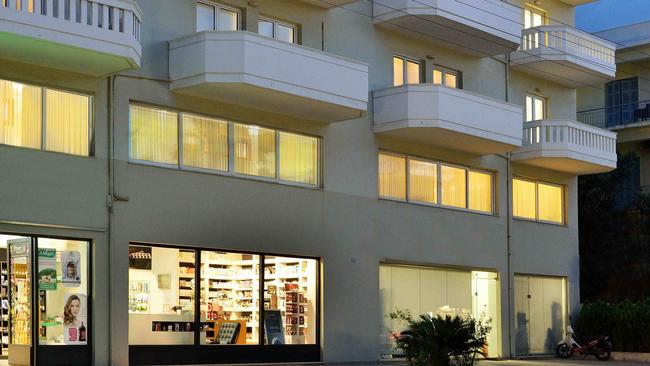
Australian surrogacy expert Sam Everingham, founder of Growing Families, has been in contact with families caught up in the fallout of the police raid as well as employees who worked at the clinic.
He said many of the intended parents, who have not been accused of any wrongdoing, had contacted him and said they had made payments in cash or via bank deposits into the personal acccounts of staff at the clinic.
Mr Everingham said one MFI employee had her phone tapped for months, unaware she was being “shadowed” by undercover police officers to patient and birth appointments.
The worker claimed she was unaware of any wrongdoing and that it was a “blessing” she was not involved in the alleged fraud. She is not accused of any wrongdoing by police.
The staff member also revealed the allegedly brutal working conditions inside the Greek clinic, claiming that one of the leading doctors would go into “rages” which left him purple in the face.
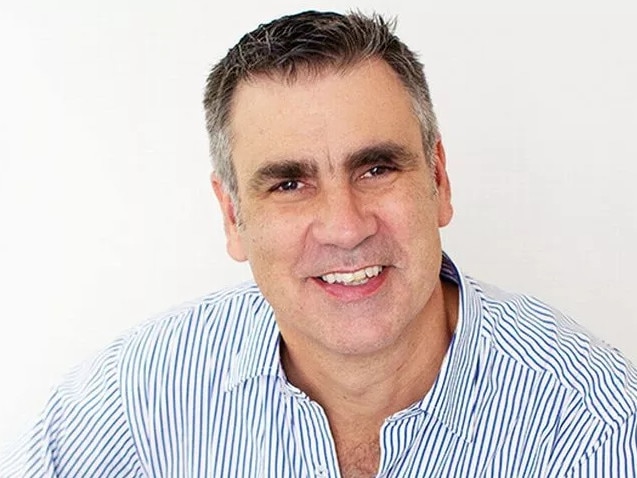
On Saturday, two Australian families were permitted to take their babies home from a Greek hospital after establishing their parental rights by providing DNA evidence. They have been able to take the infants to local accommodation.
Mr Everingham was in contact with one of the families and said: “They’re exhausted, but also ecstatic and relieved”.
“The babies are with their parents in their apartments in the town,” he said.
“It’s taken a huge emotional toll on them, they’re just trying to come to terms with being new parents.”
Further health checks will be conducted on Monday before birth certificates are issued, enabling the parents to apply for passports and then bring their children home.
“This is a wake-up call for families and for the Australian government,” Mr Everingham said.
He said it was imperative people looking at engaging with overseas surrogacy providers get support, make sure they meet the surrogate upfront, and get copies of all paperwork.
“People are very vulnerable and desperate and they’ll overlook red flags,” he said.
“The Australian government needs to make sure they put in place policies around surrogacy that we’ve been lobbying for years. We want to make it easier and to protect people.”
AUSSIES LOSE $142K
Growing Families is a surrogacy support group that helps educate parents seeking to have a child using a surrogate. It stopped referring Australian families to the Mediterranean Fertility Clinic, the surrogacy service at the centre of the saga, months ago after developing concerns about the volume of cases it was producing.
“We hadn’t sent anybody to that clinic for about nine months because we were worried that it was getting so overloaded with cases, but there were IVF clinics in Australia that were referring cases there,” said Mr Everingham.
He explained Australian couples were being charged 85,000 euros ($A142,598) under the surrogacy arrangement and many had lost a large amount of money as the business collapsed.
He said he had been dealing with the clinic in the last week and was completely shocked.
In total, Mr Everingham is in contact with eight desperate Australian families caught up in the crisis,which has seen newborn babies connected to the clinic placed in detention in hospital.
Their parents are prevented from having any access to them while DNA testing is undertaken and they fear they will not be able to relocate their child to Australia.
The babies of two Australian couples are in detention in the hospital, Mr Everingham said.
A third child is not in detention but is residing in an apartment in Greece while the parents seek Australian citizenship and other documentation so they can bring the baby home.
“We’ve got about five more, which we know of which have got pregnancies on the go where they are in contact with their surrogates,” Mr Everingham said.
Another 40 families who had embryo transfers were also involved.
Some of these 40 families were told the embryo transfer had failed, in other cases their surrogates had fled back to their own country or the surrogate is stuck in Greece and can’t get out now because the service has been closed.
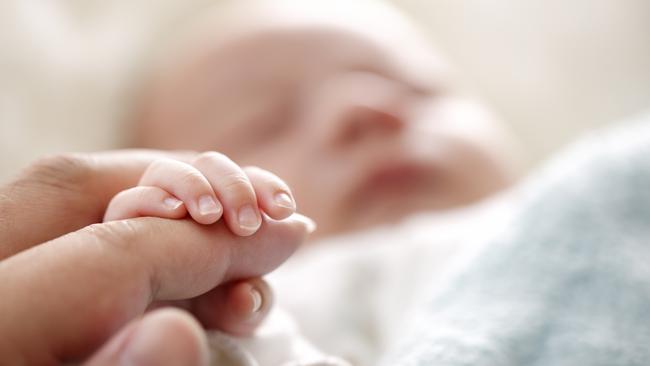
‘BRUTAL SETBACK’
A lawyer acting for two couples caught in the saga says his clients have been traumatised.
Fertility and surrogacy lawyer Stephen Page from Page Provan said his clients had genetic material in the Mediterranean Fertility Clinic they could no longer access.
“So they have egg, sperm, embryos. How are they going to get it out? The paperwork to establish that they are the parents has disappeared into some kind of vortex,” Mr Page said.
He said it was a brutal setback for the couples who had already been on a heavy emotional journey as they sought to conceive a child.
Mr Page said data he had obtained under Freedom of Information from the Department of Home Affairs showed in the financial year ending June 30 2022, there were 213 children born overseas using surrogacy.
The US is the most popular country for surrogacy with 99 children born there; Ukraine was second with 49 children; 21 were born in Canada; seven in Georgia; seven in Columbia and six in Thailand.
There were fewer than five children a year between 2017 and 2020 born through surrogacy in Greece, with six in 2021, and none in 2022.
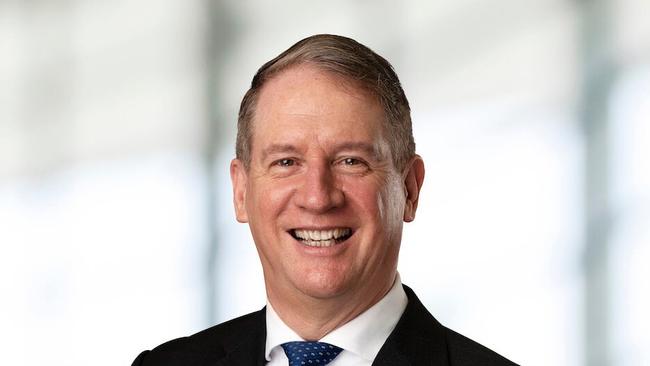
HISTORY OF TRAUMA
Greece only offers surrogacy to heterosexual couples and single women and by the time they used this route to have a child they had often experienced multiple setbacks and pregnancy losses and have been on an emotional rollercoaster, he said.
“Often enough they have had a series of miscarriages for example. I’ve had clients who have had six, you have this history of trauma build up,” he said.
They have a strong belief they will obtain a child through surrogacy because a high quality embryo will be implanted into a healthy uterus in a highly fertile woman.
“There’s always risk for the for intended parents that for some reason the embryo doesn’t work or doesn’t get pregnant,” he said
“But what no one ever figures is that the whole place goes belly up. So that’s something that sort of hit people sideways”.
Neos Kosmos – a national Greek community newspaper in Melbourne – is reporting that Greece’s Health Minister Michalis Chrysochoidis removed Nikolaos Vrachnis as head of the regulatory body overseeing assisted reproduction on the weekend.
National Authority on Assisted Reproduction is involved in approving and licensing IVF clinics in Greece.
Mr Page said this made the job of retrieving the genetic material held by the clinic even harder because the regulatory body itself was in turmoil.
“I would expect that what will happen over time is the great regulator will allow people to get their genetic material,” he said.
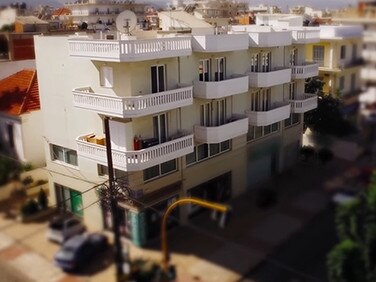
CHECKS AND BALANCES
Until now Greece had a highly structured process for surrogacy, he said.
The laws required the intended parents to be recognised as the parents that before an embryo could even be implanted, Mr Page said.
Australian couples had to apply to a court for approval and only once a judge had made an order that they would be the intended parents of the child when it was born could the surrogacy process begin, he said.
“So you would think that level of judicial oversight would be a great disincentive to committing fraud or encouraging trafficking,” he said.
“In addition to that, Greece has a special regulator of its IVF industry. So again, one would think that if it’s it was doing its job properly, then an event like this shouldn’t have happened,” he said.
Australians who had already obtained a child using the clinic in years past may not have carried out a DNA test to get the child citizenship and “they’ll be wondering now whether maybe we should have done that,” he said.
They should seek legal advice and speak to a fertility counsellor, he said.
“They should still love and cherish the child, they shouldn’t abandon the child,” he said.
“The child’s the victim just like the parents,” he said.
The Australian Government had been particularly helpful to parents when similar crises hit other surrogacy businesses in places like Thailand by quietly using back channel diplomatic processes, he said.
“It’s just done such a good job in helping protect these babies, and enabling these babies to come home and obtain Australian citizenship,” he said.
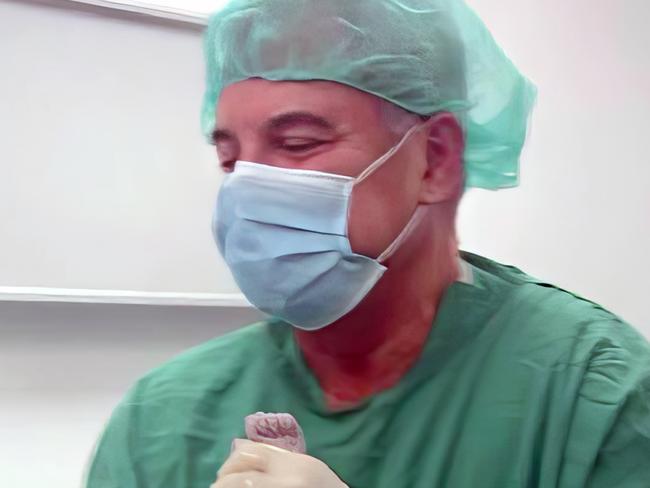
DISTRESSING ALLEGATIONS
Victorian woman Samantha Rowe is one of the many Australians left distressed over the allegations made about the clinic.
She runs the charity “Memories of an Angel”, which raises awareness for pregnancy and infant loss by selling merchandise.
“As you may be aware, there has been some breaking and very concerning news coming out of Greece regarding the Mediterranean Fertility Institute recently,” Ms Rowe wrote on Facebook.
“I can confirm that this is the clinic which I have dealt with over the past two or so years and that which gave me Oliver.
“The allegations being made are absolutely heartbreaking for all concerned and have very serious consequences for many individuals and families.”
Ms Rowe has heartbreakingly lost four children including Cooper, Hudson and identical twins Emma and Zoe before she undertook surrogacy.
“When initially looking to undertake surrogacy, I did my due diligence. At the time (the clinic) was known to be one of the largest, oldest and most reputable organisations in Greece.
“I, like many others, am very concerned about this news and the allegations made.
“There is currently a thorough investigation underway and I am respectfully allowing the authorities to complete this process whilst I wait to hear of any potential implications for Oliver/myself.
“As you can appreciate, this has been a really stressful time for me and as such I will not be making any further comments on the matter until the investigation is finalised.”
When police raided the clinic on August 8 they arrested some staff members.
Australian parents caught up in the crisis have to undergo DNA testing to prove they are genetically linked to the child but the testing is taking time with parents waiting over a week so far for results.
GAINING AUSTRALIAN CITIZENSHIP
“How it works is if there’s a DNA link or court order, which is valid the Australian Government will grant citizenship because the parent was an Australian citizen,” Mr Everingham said.
“Then they can apply for an emergency passport for the child to bring them home. So that’s the process and that can take sort of six or seven weeks or more,” he said.
He said his service was working with the families, Australian officials and lawyers in Greece to get the children to Australia.
It is estimated around 65 Australian couples used the service each year and 35 went on to have a baby using surrogate mothers who were meant to be paid $19,000 euros for their role but allegedly were only given half that amount.
Australian couples were attracting to using the service in Greece because it had altruistic laws and it was a pleasant destination to go to, Mr Everingham said.
“There are not that many choices for Australians that are affordable, for US surrogates are expensive for many people. Many people chose Greece over Ukraine or Georgia. But you have to be a heterosexual couple of single female to engage in Greece,” he said.
It is not the first time overseas surrogacy arrangements have put Australian couples in desperate situations and Mr Everingham pleaded with the government to change the laws to make surrogacy easier on Australian shores.
Multiple inquiries had called for change but no action had been taken.
“It’s not fair that Australia doesn’t have better laws. We can’t even get the government to agree to a Medicare rebate for surrogacy IVF. It’s just a joke. So they’re forcing people offshore they’re saying they’re saying it’s just you know, we don’t want to support you guys during surrogacy. It’s infuriating,” he said.




